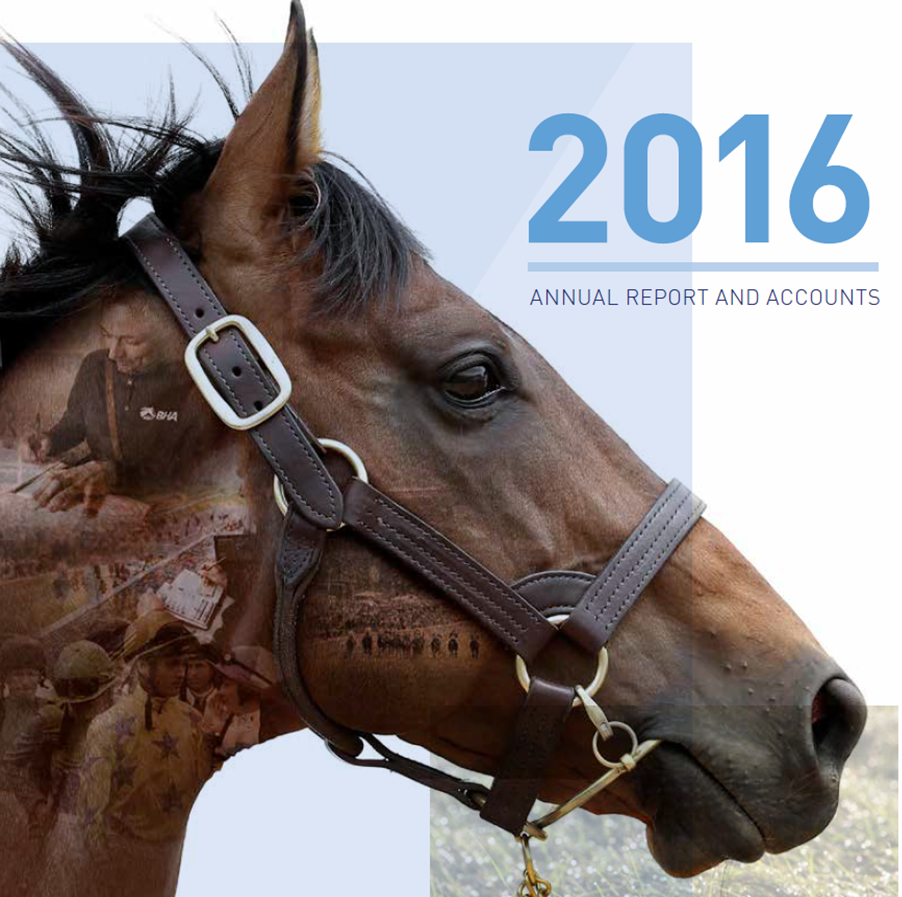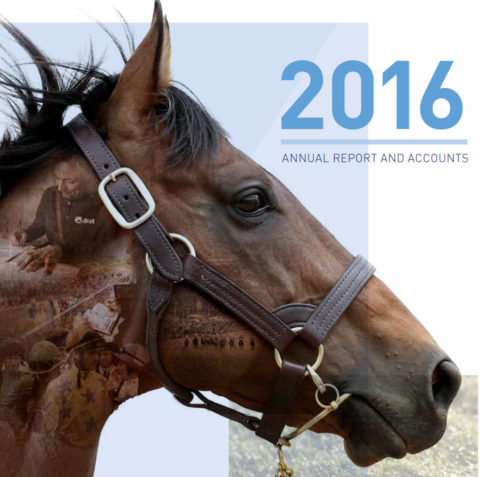
The British Horseracing Authority (BHA) has today published its annual report and accounts for 2016 which provide a comprehensive review of its operating activity and financial performance.
The report highlights that shoots of growth were achieved across several key metrics in 2016, including participation, ownership, betting, viewing, field sizes and horses in training. The sport’s new tripartite governance structure is credited with helping to make this growth possible, though there is much still to be done to ensure that the sport continues to prosper. A data pack containing the sport’s performance against key metrics can be found here.
Highlight achievements in 2016 included:
- Significant progress towards achieving the reform of the Levy, which came into effect on 25 April 2017 and is anticipated to unlock £30-£40 million in additional income for the sport
- Raising more than £12 million of additional revenue through the Authorised Betting Partner scheme, which prevented the sport from making significant cuts to prize money and regulation which would have been the result of declining Levy yields
- Making considerable progress in implementing the recommendations of the Integrity Review and subsequent Quinlan Review, to improve operational delivery and increase the effectiveness of our integrity function and reduce the risk of potential conflicts
- Developing a rolling, three-year business plan and budget to deliver our strategy to continue to improve the BHA’s performance in its core areas, and to contribute to the growth of the sport, working with our tripartite partners and other stakeholders
- Improved financial performance with forecast deficit reduced by 50 per cent in 2016 and the 3 year business plan will lead to break-even over the medium-term. As part of this business plan, the BHA agreed fee increases for 2017-2019 with horsemen and the racecourses in order to deliver planned activity.
The BHA’s Business Plan and Budget Guide published the nine strategic objectives which the BHA had identified in 2016. A summary of those objectives and a selection of milestones achieved last year can be found here.
In 2016, the BHA reduced its forecast deficit by almost 50 per cent, from an expected £349,000 to £175,000. This was despite one-off increases in certain costs, notably issues arising from perception of bias with the Disciplinary Panel which amounted to £425,000 in 2016. The BHA was able to offset these costs by making savings in other areas. The BHA’s income was also boosted by an increase in fee income due to a rise in numbers of owners and horses-in-training.
Steve Harman, Chairman of the BHA, said:
“Racing made good progress in 2016 through having in place a clear growth strategy, strong governance and strong leadership both within the BHA and across the sport.
“In 2016 the BHA showed its commitment to tackling head on the challenges the sport faces. This was visible in our work with Government towards replacing the Levy system; our commitment in addressing the challenges our industry faces in recruiting staff to the sport and ensuring we care properly for those people who work within the industry; making improvements to ownership to better cater to owners – major contributors to our sport; building our intelligence and investigative capabilities; enhancing our human and equine testing strategies and ensuring we are prudent and sensible in how we invest the sport’s money.
“The additional revenues secured from April 2017 via the replacement Levy represent the start, rather than the end, of a journey towards long-term, sustainable growth. I would like to thank all of those working in our great sport for the part they play from before dawn to after dusk and for your continued support in the future.”
Nick Rust, Chief Executive of the British Horseracing Authority, said:
“2016 was a year which saw us make good progress against our strategic objectives, not least in securing long-term sustainable funding for the sport, which has now come into effect and will generate much-needed revenue for the industry. This, together with growth witnessed in a number of the sport’s key indicators, mean there is good reason to feel optimistic about the future of our sport.
“Following the issues we had with a perception of bias concerning a Disciplinary Panel Chairman I instigated an independent review of our disciplinary panels and procedures. Whilst Christopher Quinlan QC found our current system to be fair and legally robust, the Board fully accepted the 24 recommendations Mr Quinlan made to modernise our quasi-judicial functions and put them at the forefront of sports regulation.
“I am pleased to say that, through the active management of our overall budget, we ended the year £175,000 better off than forecast despite the one-off impact of costs incurred in relation to a perception of bias with our disciplinary panel.”
Notes to Editors

